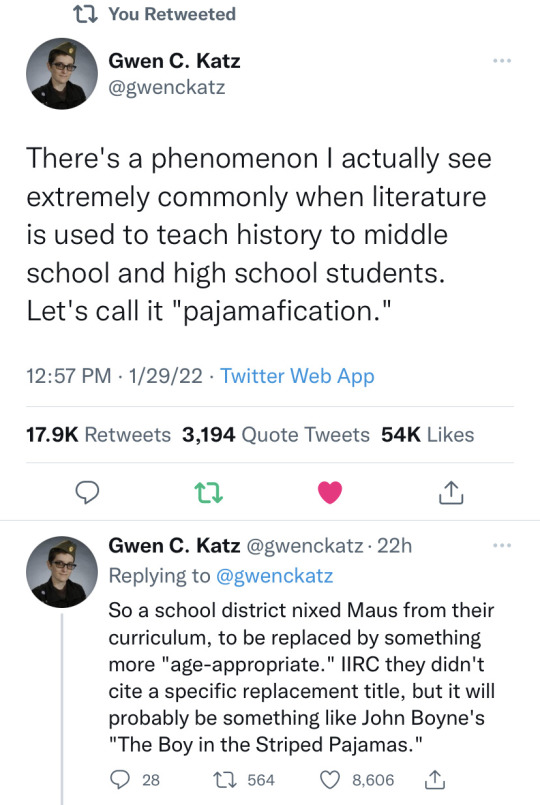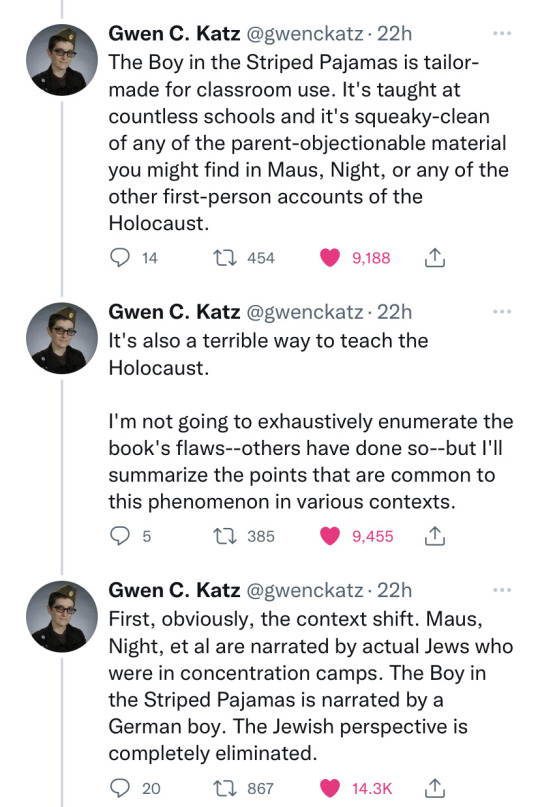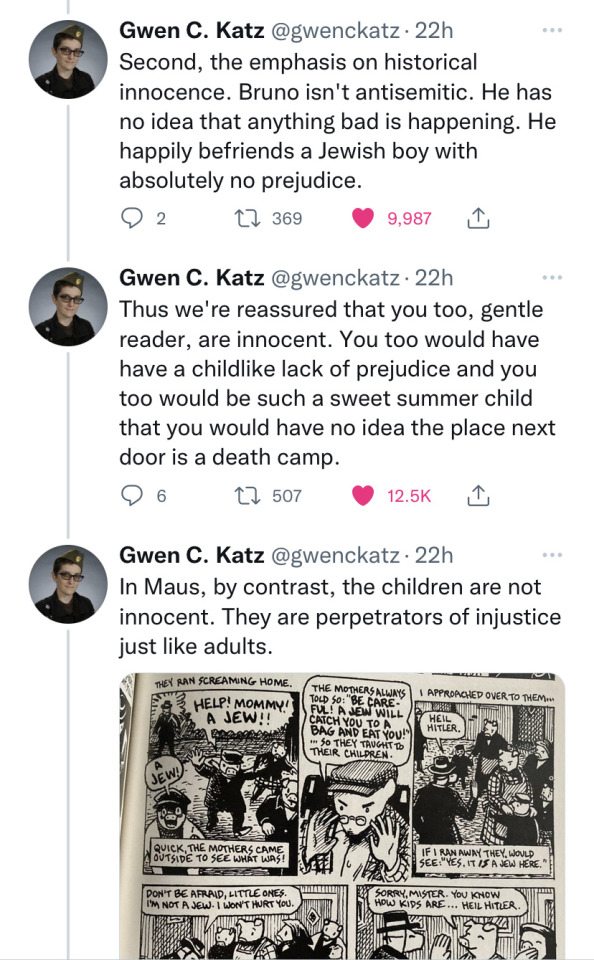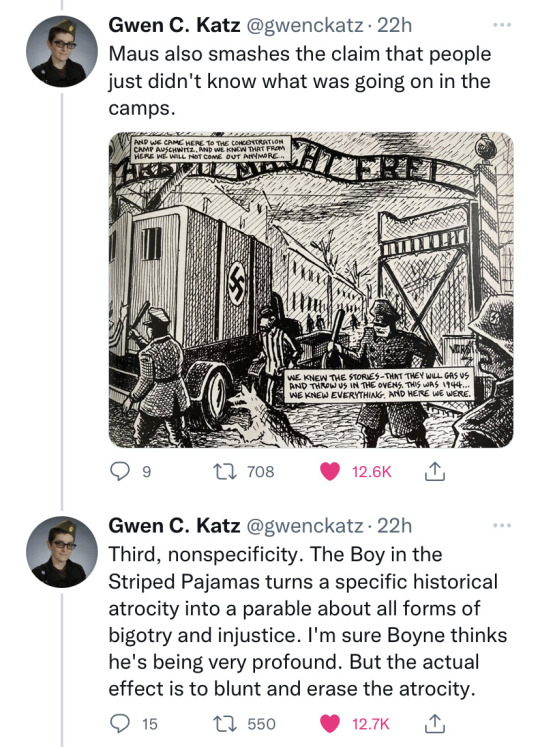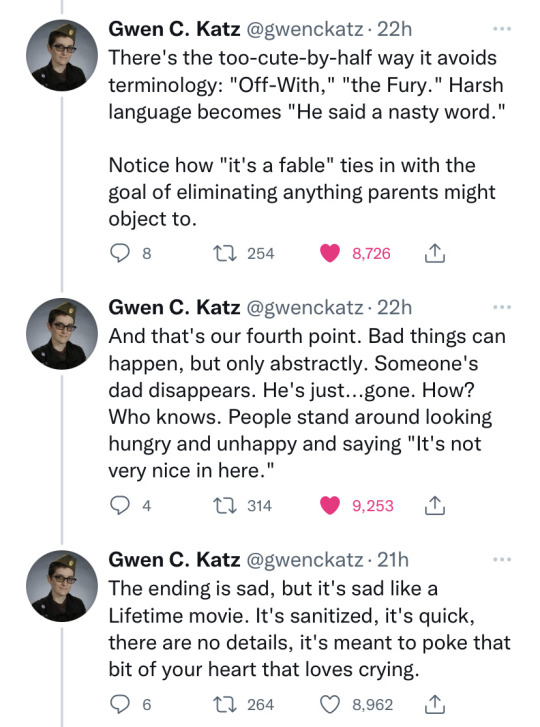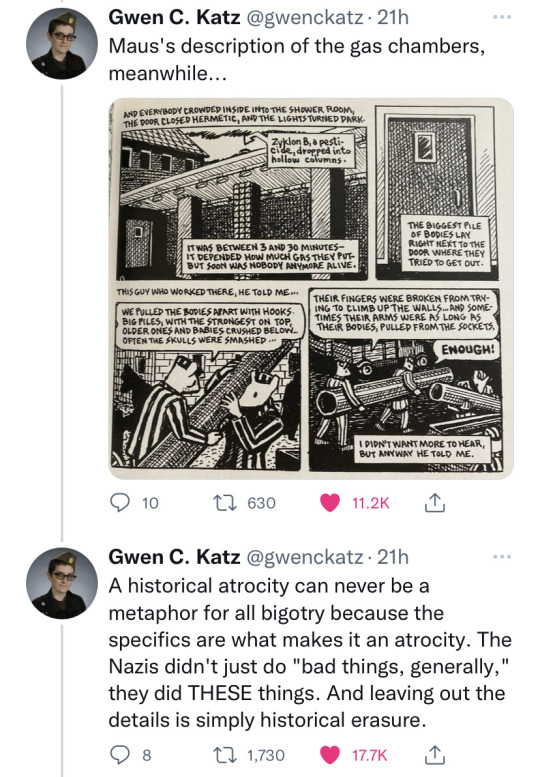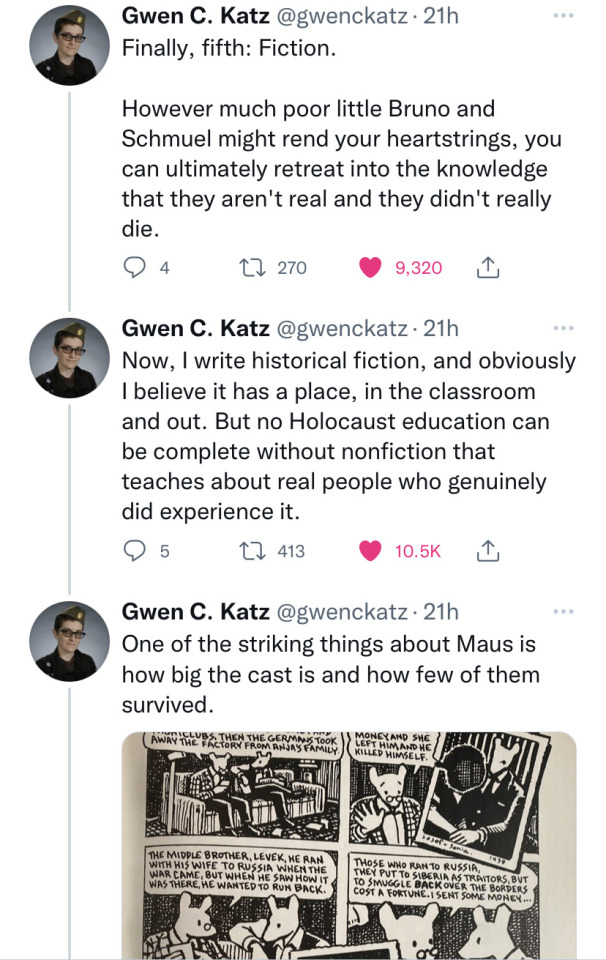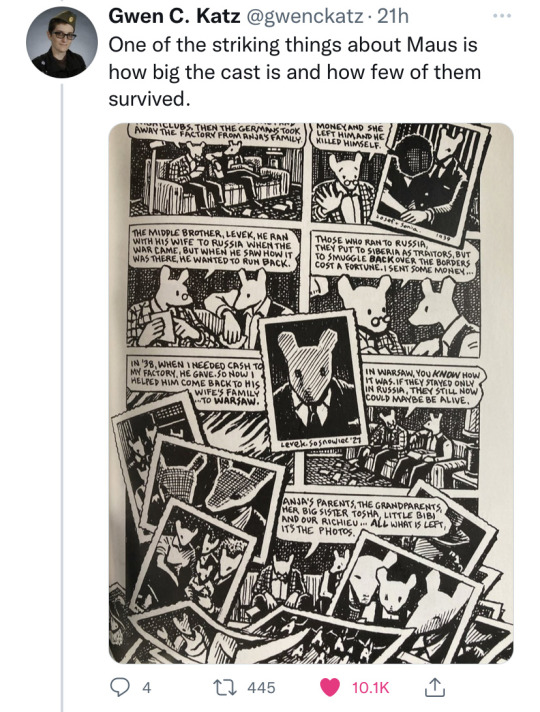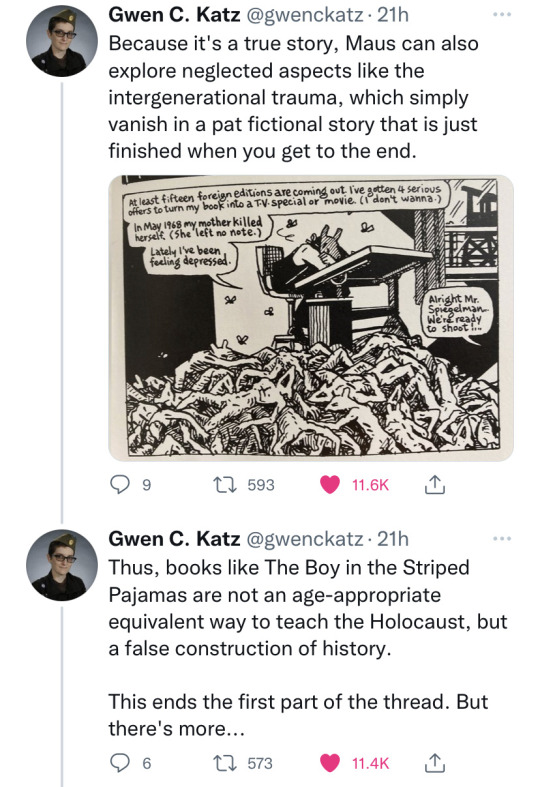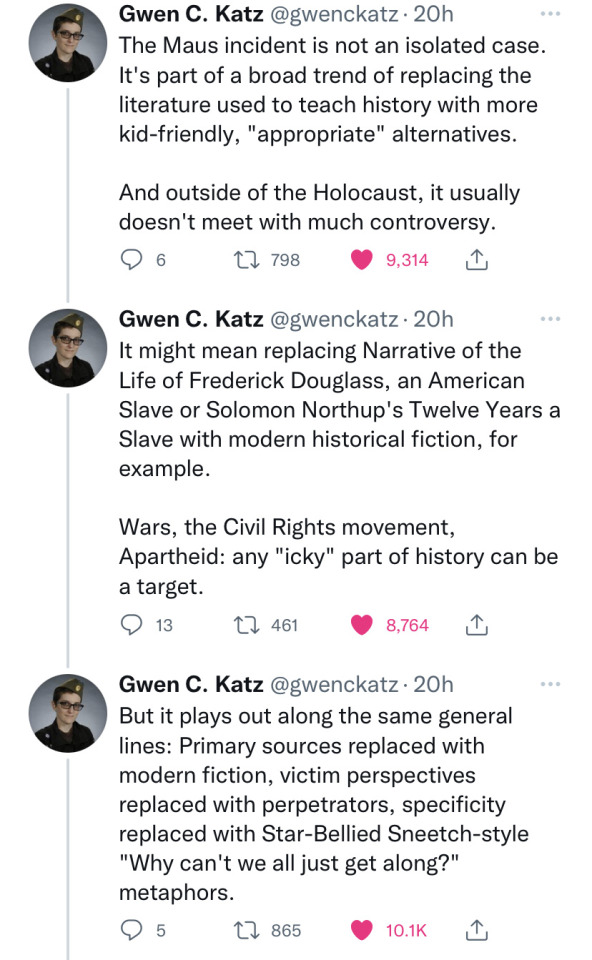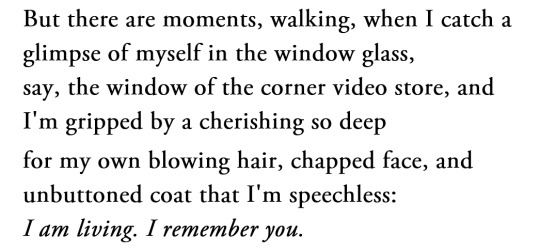Text
Higgledy-piggledy
unparliamentary
green parrots quarrel
outside in the trees
Squawking out epithets
uncomplimentary
Squads of unmannerly
Oversized peas.
39K notes
·
View notes
Text

"Little ghosts don’t carry little wounds. I think our pain expands the longer we’re neglected."
623 notes
·
View notes
Text
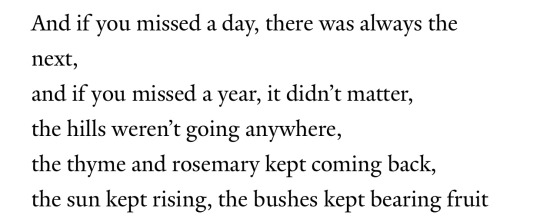
— Sunrise, by Louise Glück
95K notes
·
View notes
Text

Heather Havrilesky, Ask Polly: Help, I’m The Loneliest Person In The World!
40K notes
·
View notes
Text
“Smells of exhaust smoke, the sea, the garden’s autumn rot. Brief desolation. I know nothing, nothing.”
— John Banville, The Sea
1K notes
·
View notes
Text
At 40, Franz Kafka (1883-1924), who never married and had no children, walked through the park in Berlin when he met a girl who was crying because she had lost her favourite doll. She and Kafka searched for the doll unsuccessfully. Kafka told her to meet him there the next day and they would come back to look for her.
The next day, when they had not yet found the doll, Kafka gave the girl a letter "written" by the doll saying "please don't cry. I took a trip to see the world. I will write to you about my adventures."
Thus began a story which continued until the end of Kafka's life.
During their meetings, Kafka read the letters of the doll carefully written with adventures and conversations that the girl found adorable.
Finally, Kafka brought back the doll (he bought one) that had returned. “It doesn't look like my doll at all," said the girl.
Kafka handed her another letter in which the doll wrote: "my travels have changed me." the little girl hugged the new doll and brought her happy home.
A year later Kafka died. Many years later, the now-adult girl found a letter inside the doll. In the tiny letter signed by Kafka it was written:
"Everything you love will probably be lost, but in the end, love will return in another way."
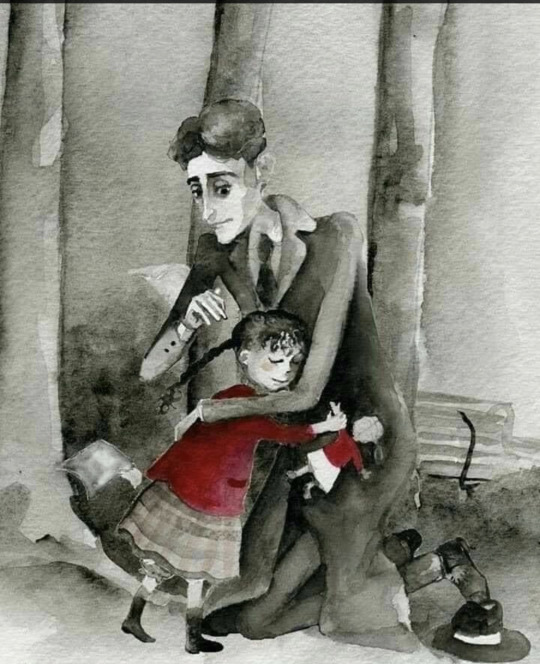
116K notes
·
View notes
Text
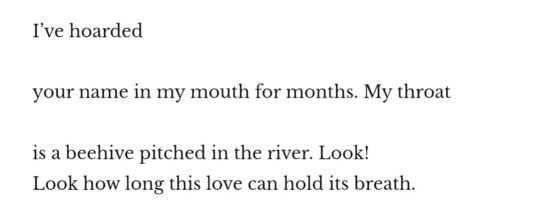
Your Love Finds Its Way Back, Sierra DeMulder
11K notes
·
View notes
Text
2K notes
·
View notes
Text
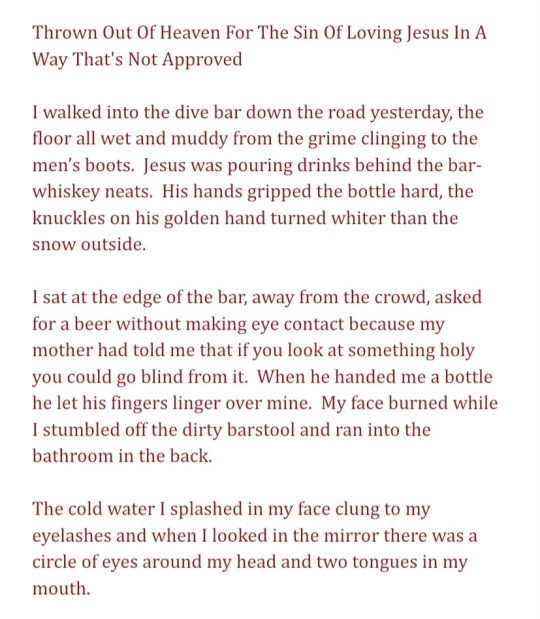
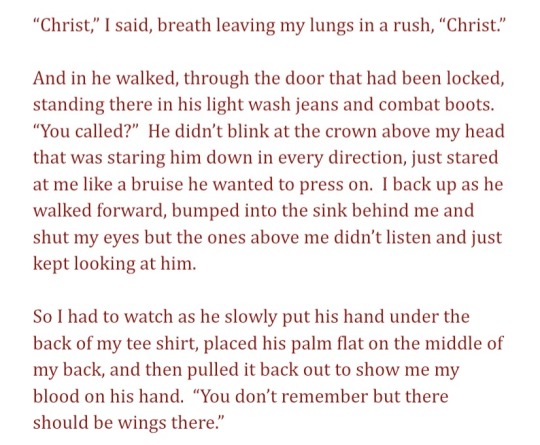
Thrown Out Of Heaven For The Sin Of Loving Jesus In A Way That’s Not Approved
4K notes
·
View notes
Text
In the first poetry workshop I ever took my professor said we could write about anything we wanted except for two things: our grandparents and our dogs. She said she had never read a good poem about a dog. I could only remember ever reading one poem about a dog before that point—a poem by Pablo Neruda, from which I only remembered the lines “We walked together on the shores of the sea/ In the lonely winter of Isla Negra.” Four years later I wrote a poem about how when I was a little girl I secretly baptized my dog in the bathtub because I was afraid she wouldn’t get into heaven. “Is this a good poem?” I wondered. The second poetry workshop, our professor made us put a bird in each one of our poems. I thought this was unbelievably stupid. This professor also hated when we wrote about hearts, she said no poet had ever written a good poem in which they mentioned a heart. I started collecting poems about hearts, first to spite her, but then because it became a habit I couldn’t break. The workshop after that, our professor would tell us the same story over and over about how his son had died during a blizzard. He would cry in front of us. He never told us we couldn’t write about anything, but I wrote a lot of poems about snow. At the end of the year he called me into his office and said, “looking at you, one wouldn’t think you’d be a very good writer” and I could feel all the pity inside of me curdling like milk. The fourth poetry workshop I ever took my professor made it clear that poets should not try to engage with popular culture. I noticed that the only poets he assigned were men. I wrote a poem about that scene in Grease 2 where a boy takes his girlfriend to a fallout shelter and tries to get her to have sex with him by tricking her into believing that nuclear war had begun. It was the first poem I ever published. The fifth poetry workshop I ever took our professor railed against the word blood. She thought that no poem should ever have the word “blood” in it, they were bloody enough already. She returned a draft of my poem with the word blood crossed out so hard the paper had torn. When I started teaching poetry workshops I promised myself I would never give my students any rules about what could or couldn’t be in their poems. They all wrote about basketball. I used to tally these poems when I’d go through the stack I had collected at the end of each class. 1, 2, 3, 4, 5, 6, 7 poems about basketball. This was Indiana. Eventually I couldn’t take it anymore. I told the class, “for the next assignment no one can write about basketball, please for the love of god choose another topic. Challenge yourselves.” Next time I collected their poems there was one student who had turned in another poem about basketball. I don’t know if he had been absent on the day I told them to choose another topic or if he had just done it to spite me. It’s the only student poem I can still really remember. At the time I wrote down the last lines of that poem in a notebook. “He threw the basketball and it came towards me like the sun”
81K notes
·
View notes
Text
i’ve just been thinking about how english and americans online expect everyone to know their literature and poetry, their ~classics~ when literally every other country in the world also has an incredible and interesting literary history that is probably more relevant to it’s own citizens, like i’m not saying you shouldn’t branch out to intl lit because i think everyone should but that includes english first language speakers who have never picked up a translated book in their lives
26K notes
·
View notes
Photo
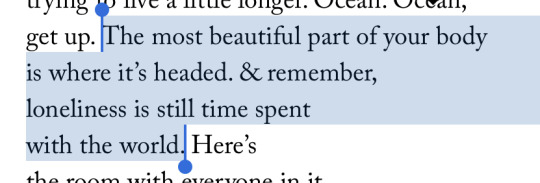
Ocean Vuong, from Someday I’ll Love Ocean Vuong
72K notes
·
View notes
Photo


Karese Burrows, “Persephone Writes a Poem” // Richard Siken, “A Primer for the Small Weird Loves”
5K notes
·
View notes
